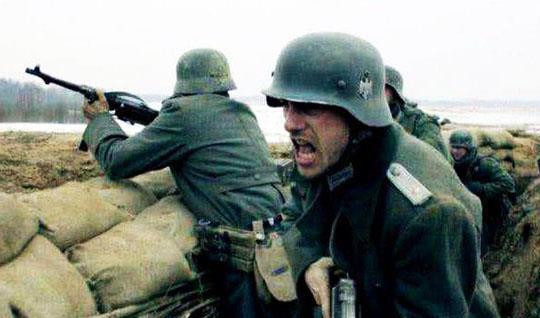During World War II, although Germany and Japan were both fascist groups and committed numerous crimes, there were many differences between the two.
Because of their long-term education in Bushido and militarism, Japanese soldiers regarded killing as grass and would spontaneously kill innocent people even without orders from the top.
And the German soldiers, although they have also done a lot of evil things, are carrying out orders, and there is still resistance in their hearts.

After the end of World War II, there was a relatively sensational news in Yugoslavia, which made people very emotional.
In the 1960s, construction was rife everywhere in Yugoslavia, and the skeletons of World War II victims, apparently civilians shot and killed en masse by the Germans, were excavated on a construction site in the capital, Belgrade.
But what was shocking and puzzling was that one of the corpses was a German soldier! How could he be buried with a group of Yugoslavs? What kind of story is there?
The Yugoslav government began to investigate, and the news also reached West Germany, attracting widespread attention, and as a result, some of the parties came forward, and a past of the struggle between good and evil, conscience and evil, was finally revealed.
On July 20, 1941, a unit of the German 714th Infantry Division captured 16 Yugoslav civilians believed to be partisans, who were taken to a haystack and lined up in preparation for execution.
When the German officer ordered the firing squad to raise their guns and aim, a German corporal named Joseph Schultz was motionless.
The officer walked up to him and scolded, "Schultz, why don't you raise your gun!" ”
Schultz replied firmly: "I refuse to kill innocent civilians, this is a war crime!" I'm not an executioner! ”
The officer was not at all surprised, because he had long known that this Schultz was an anti-war and anti-fascist intellectual, who often made anti-war remarks among his comrades-in-arms, so the officer had long wanted to get rid of this "scourge" in the army.
The officer threatened: "Schultz, I give you two choices, one, you immediately raise your gun and shoot; second, you go over and stand among the Yugoslav prisoners!" Which do you choose? ”
Schultz had long been heartbroken that his country had been coerced by the Nazis into this criminal war, especially when he often witnessed his comrades slaughtering innocent people like today, which made him feel so guilty that he wanted to seek a way out, but he did not know what to do.
At this moment, in the face of the fierce eyes of the commander and the sad and miserable faces of a long line of innocent people on the other side, Schultz suddenly found that he had finally found the way to completely liberate him!
Schultz calmly threw away his rifle, took off his steel helmet, tore off the German insignia emblem that had humiliated him, smiled and walked toward the ranks of the victims, turned around, and calmly faced the muzzle of his comrades' guns.
Schultz's comrades were stunned, not knowing what to do, and all looked at the officers. The officer looked sinister and ordered again, "Raise your guns!" Whoever resists, they walk the same way! ”
The German soldiers raised their guns in a trembling manner and aimed at the 17 men, and after a burst of intense gunfire, Schultz and the 16 Yugoslavs fell together...
After this touching past was revealed, the media in many countries rushed to report it, causing a great sensation.
In 1980, the Yugoslav government erected a monument at the site of the victims' executions in memory of the 17 victims, especially to pay tribute to Schultz. At that time, the West German government also sent officials to attend the commemoration, which became a very moving story during the Cold War.